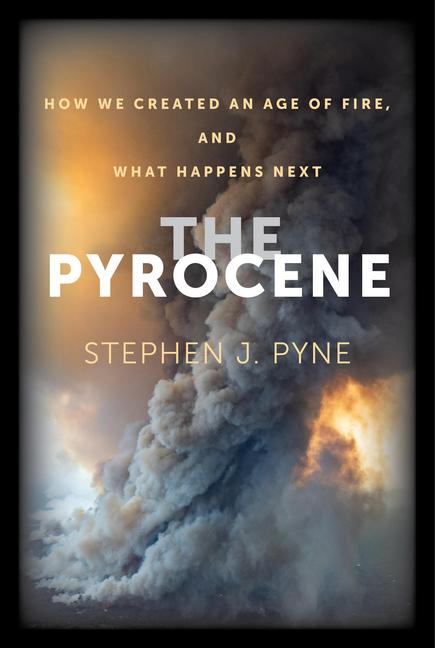
Zustellung: Sa, 11.01. - Do, 16.01.25
Versand in 2 Wochen
VersandkostenfreiBestellen & in Filiale abholen:
"The world is on fire, and no one sees that--or writes about it--better than Stephen Pyne. This is a brilliant guidebook to that future."--David Wallace-Wells, author of The Uninhabitable Earth <p/> "The Pyrocene is a lambent meditation on the many meanings of fire: geological, environmental, agricultural, nutritional, metallurgical, metaphorical. Pyne makes the illuminating case that fire, our first domesticated beast, tamed and suppressed for much of the industrial age, is now re-wilding itself."--Marcia Bjornerud, author of Timefulness <p/> "A master class in pyrogeographic thinking. It sears into the consciousness the inescapable entwinement of life, fire, and culture."--David M. J. S. Bowman, Professor, University of Tasmania, Australia <p/> "With The Pyrocene, Pyne redefines the Anthropocene as an age of fire, envisioning a renewal of our diverse relationships with fire as the path to a better future for people and the rest of nature."--Erle C. Ellis, author of Anthropocene: A Very Short Introduction <p/> "Pyne is the pyro-poet of our time. We are the fire species and this is our story. This book represents a lifetime of observing the flame in all corners and cultures. It is a beautiful narrative that is deeply relevant and provides critical reflection on how we live sustainably on our fire planet."--Jennifer K. Balch, Director of Earth Lab, University of Colorado Boulder <p/> "A wonderful, insightful book. I highly recommend it, first to those dealing directly with wildfires, second to policy makers, and finally to every citizen because we need to know about our transition into the Pyrocene era, or we will become the frog in the boiling pot."--Patrick Shea, former National Director of the US Bureau of Land Management <p/> "Fire is one of the important climate issues of our day. In his masterful book, Pyne, the doyen of fire history, takes us on a journey from our near past through the present and into the future. Pyne provides us with the data and tools to help us understand fire on Earth, the role it plays, our interactions with it, and the threat it may pose. This is a book that should not be ignored but read by all interested in the world about them, as well as importantly by educators and policy makers"--Andrew C. Scott, author of Fire: A Very Short Introduction
Produktdetails
Erscheinungsdatum
07. September 2021
Sprache
englisch
Seitenanzahl
192
Autor/Autorin
Stephen J Pyne
Verlag/Hersteller
Produktart
gebunden
Gewicht
378 g
Größe (L/B/H)
213/151/20 mm
ISBN
9780520383586
Entdecken Sie mehr
Bewertungen
0 Bewertungen
Es wurden noch keine Bewertungen abgegeben. Schreiben Sie die erste Bewertung zu "The Pyrocene" und helfen Sie damit anderen bei der Kaufentscheidung.









